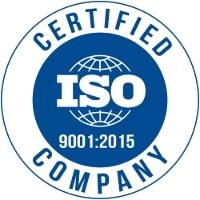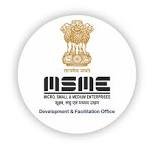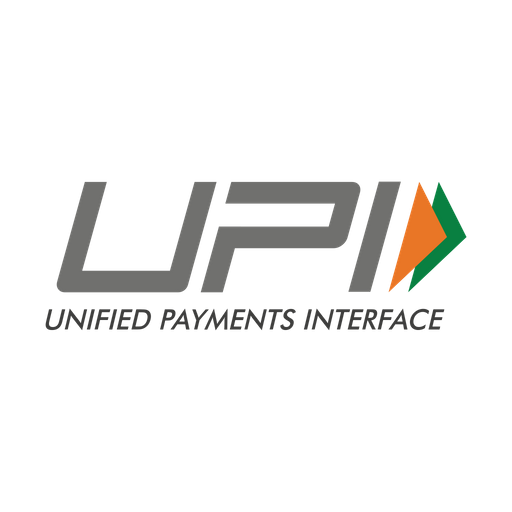
 BIS Registration for CCTV Cameras / CCTV Recorders : IS 13252 (Part 1)
BIS Registration for CCTV Cameras / CCTV Recorders : IS 13252 (Part 1)
Introduction:
CCTV Cameras / CCTV RecordersIS Standard : IS 13252 (Part 1) : 2010 Closed-circuit television cameras, sometimes known as CCTV cameras, are surveillance tools that record video in a designated space. They are frequently used for surveillance and security in a variety of locations, such as residences, workplaces, public areas, and government buildings. CCTV recorders, on the other hand, are tools for organizing and storing the video footage that CCTV cameras have captured. These recorders, which are available in several models including Network Video Recorders (NVRs) and Digital Video Recorders (DVRs), are essential for organizing and analyzing surveillance material.
Commencing on May 23, 2018, CCTV cameras and recorders must be registered in accordance with IS 13252 (Part 1):2010 through the Bureau of Indian Standards' (BIS) Compulsory Registration Scheme.
Video pictures are captured by the sensors and lenses on CCTV cameras, and these images are then sent to the CCTV recorder for archiving and playback. The recorder keeps track of surveillance data for security and investigation purposes, enables users to access and examine recorded footage, and searches for particular events or situations. Modern security and surveillance systems require both CCTV cameras and CCTV recorders as essential parts because they improve safety, monitor and discourage unauthorized activity, and offer crucial proof in the event of an emergency or incident.
The surge in terrorist activities and the acceleration of infrastructure construction have resulted in a rapid expansion of the CCTV market. The CCTV Camera Market is expected to develop at a significant compound annual growth rate (CAGR) of 11.4% from 2022 to 2029. In 2022, the market was valued at US$ 15.33 billion. Its overall income is expected to approach US$ 32.65 billion by 2029.
About The Bureau of Indian Standards (BIS)
The erstwhile Indian Standards Institution (now Bureau of Indian Standards) was established in the year 1947 with the objective of harmonious development of standardization activity in India. The Bureau of Indian Standards (BIS) was established under the BIS Act, 1986 for the harmonious development of the activities of standardization, marking and quality certification of goods and for matters connected therewith or incidental thereto. A new Bureau of Indian Standards Act, 2016 which was notified on 22nd March 2016, has been brought into force with effect from 12 October 2017 that reinforces the activities of BIS in respect to standardization and certification of goods, articles, processes, systems and services.
 Guidance Document on Quality Control Orders (QCOs)
Guidance Document on Quality Control Orders (QCOs)  Products (Under Compulsory Certification) CRS Products List
Products (Under Compulsory Certification) CRS Products List Scheme – I (
Scheme – I ( Mark Scheme ISI Certification Products List)
Mark Scheme ISI Certification Products List)
 News And Update
News And Update
Basic Requisites for BIS Licence
Obtaining a BIS Licence hinges on four key pillars:
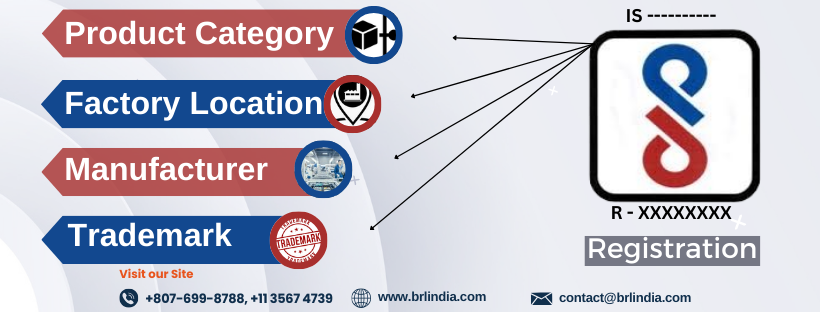
1. Manufacturer: The BIS Licence is exclusively granted to manufacturers, not importers or sellers. Importers can act as the Authorized Indian Representative (AIR) of a foreign manufacturer to submit the application, but the licence is issued to the manufacturer.
2. Manufacturing Address: A valid manufacturing address must be provided. If a manufacturer operates multiple factory locations for the same product, each location requires a separate BIS Licence.
3. Product: Each product needs its own licence. However, multiple models within the same product category can be covered by a single licence.
4. Brand/Trademark: Each brand or trademark must have its own BIS licence.
BIS Registration Procedure
The BIS registration process for amplifiers under IS 616:2017 varies based on the geographic location of the manufacturing unit. The processes differ for domestic (Indian) and foreign manufacturers.
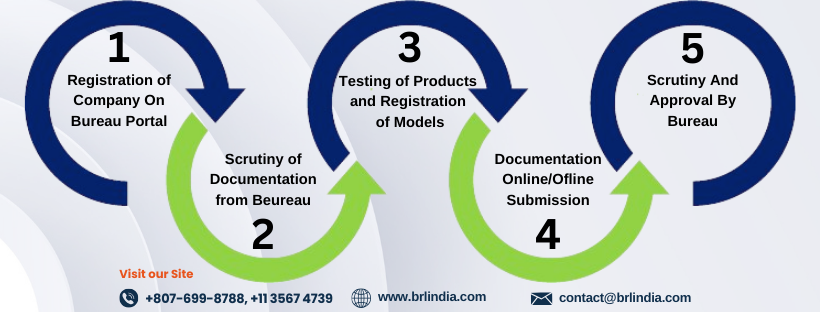
Process for Foreign Manufacturers
1. Nominate Indian Representative: The foreign manufacturer must nominate an Authorized Indian Representative (AIR) {What is AIR}.
2. Submit Online Application: An online submission must be made.
3. Sample Testing: Samples must be tested by a BIS-approved laboratory.
4. Submit Application and Test Report: The application, including the test report, is submitted online or offline.
5. Verification: BIS officials verify the application.
6. Grant of Licence: Upon successful verification, the licence is granted. (Foreign Manufacturers Process Read More..)
Guidelines for Nominating an Authorized Indian Representative (AIR)
Foreign manufacturers must appoint an AIR for operations in India: (What is AIR Read More)
- - If the manufacturer has a liaison or branch office in India, it will be designated as the AIR.
- - If no liaison or branch office exists, the proprietor or registered user of the brand/trademark in India becomes the AIR.
- - If neither exists, another entity can be designated as the AIR.
Process for Domestic Manufacturers
1. Submit Online Application: The manufacturer submits the application online.
2. Sample Testing: Samples are tested by a BIS-approved laboratory.
3. Submit Application and Test Report: The application, including the test report, is submitted online or offline.
4. Verification: BIS officials verify the application.
5. Grant of Licence: Upon successful verification, the licence is granted. (Domestic Manufacturers Process read more)
Documents Required for BIS Registration for Amplifiers - IS 616:2017
- - Completely filled CDF/CCL form
- - Duly filled BIS application form
- - Business License of manufacturing unit (in English and local language)
- - Scope of Business License (in English and local language)
- - ISO certificate of the manufacturer
- - Marking Label/Details of Marking on the product
- - Authorization letter (if the signatory is not the head of manufacturing)
- - Trademark Certificate
- - Trademark Authorization Letter (if trademark is owned by another entity)
- - Authorized Indian Representative company registration proof (foreign manufacturers)
- - Photo ID of Authorized Indian Representative/Authorized Signatory
- - Technical Specification Sheet of Product/User Manual (Document Checklist)
Key Points to Consider for BIS Certification
1. Select BIS Recognized Testing Organization: Ensure the testing laboratory is recognized by BIS and has a valid licence.
2. Laboratory Compliance: Confirm that the laboratory's licence is valid and not suspended, and it is not undergoing an audit.
3. Sample Shipment Arrangements: Arrange for complete shipment from the manufacturer’s location to the testing laboratory.
4. Document Authentication: All documents should be signed, notarized, and stamped by the manufacturer, brand owner, and Indian representative.
5. Accurate Data Entry: Ensure accurate and detailed entries in the Construction Data Form (CDF) and Critical Component List (CCL).
6. Test Report Validity: Submit the test report to BIS within 90 days of testing. If unable to submit on time, new samples must be tested.
7. Document Preparedness: Ensure all documents are ready before sample testing.
8. Application Processing Time: BIS usually takes 15 days to approve the registration, but it can extend to 30-60 days.
Support from BRL India
Brl INDIA offers comprehensive support for BIS Registration, including:
- - Legal compliance and product testing
- - Sample development for conformity assessment
- - Liaison with BIS for application preparation, submission, and follow-up
- - Multiple visits to BIS office and management of incidental tasks
- - Free maintenance of licence for up to two years (Get In Tuch)
Additional Services by BRL lndia
- - In-house infrastructure for various certifications
- - Product evaluation and advisory on BIS registration
- - Assistance in standard formulation and testing methods
- - Analysis of changes in standards and regulations
- - Advisory on new products for BIS registration and certification
- - Representation to ministries for NOC/Exclusion of products
- - Strategic assistance for business continuity and development
- - Drafting communications for BIS department queries
- - Arranging meetings with BIS and ministries for clarifications
For more information or to ask questions, BRL In provides a platform for inquiries related to BIS registration and compliance. Contact Us Submit your queries to get more information about BIS CRS Registration Consultant and other compliance services. BRL India offers a single-window solution for all product certification needs, making the BIS Registration Process smooth and efficient.
Phone: (+91) 807-699-8788, (+91) 1135674739
Email: contact@brlindia.com
A Single Window for Product Certifications & Regulatory Compliance
[ ISI Products List | CRS IT Products List | WPC Products List | BEE Produsts List | TEC Products List ]
BRL India Services
BIS Registration Consultant | CRS Certification | ISI Domestic Manufacture | ISI Foreign Manufacture | ECO Mark Registration | ISI Mark Registration | EPR Registration for Plastic Packaging | EPR Registration for Electronic Waste Management | EPR For Re Ryclers | EPR Registration for Battery Waste Management | MOEF License | EPR Certificate | EPR Registration For Tyre Waste Certificate | EMI EMC Test | RF Testing | IP Rating Test | TEC Approvals | NABL Testing | UL Certification | CE Certification | TradeMark | Copy Right | CDCO Approvals | Drag License | WPC Certificate | BEE Registration | Fssai Registration | GEM Registration | TSDF Facility | Import Export License | Lab Setup And Lab Equipment | NOC For Steel | Legal Metrology | Certificate Consultant | ISI Certification |
Contact BRL India : For a more detailed understanding of the documentation and procedures involved in obtaining a BIS Certificate, feel free to connect with BRL India's team of experts:Phone: (+91) 807-699-8788, (+91) 1135674739 Email: contact@brlindia.com

